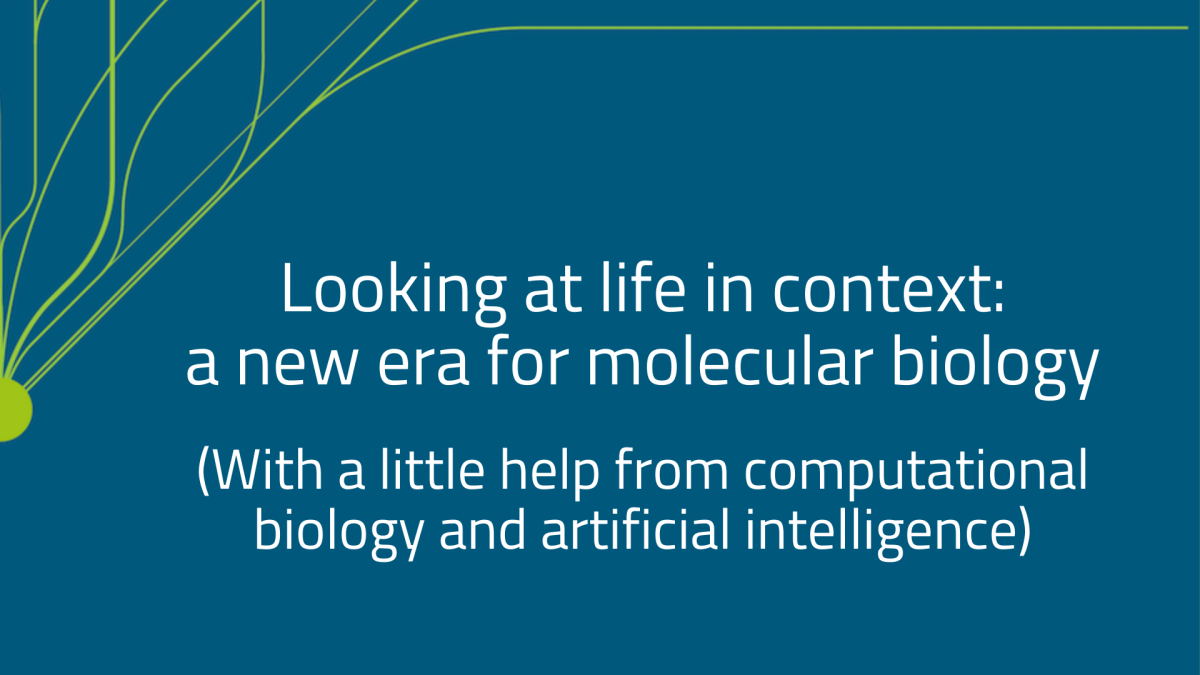
Looking at life in context: computational biology and artificial intelligence break new ground
Earlier this year, EMBL – the European Molecular Biology Laboratory, a collaborator in some of INESC-ID’s research programs, including OLISSIPO – launched its new strategic programme for 2022-2026, Molecules to Ecosystems, calling it “a new era for European molecular biology”, under which EMBL proposes to expand its scope by “looking at life in context”. (The announcement of the new strategic programme was coupled with a new year piece by Edith Heard, the director-general of EMBL, published in Nature, suggesting a more integrative approach to the study of life)
Many of these future and innovative “ways of seeing” are only available via – and due to – computational biology and artificial intelligence, areas in which INESC-ID has active research programmes and expertise. As EMBL elaborates, “Advances in computational power and artificial intelligence […] enable rigorous analysis and creative integration of these [i.e., biological] data. This tremendous technological progress in life sciences can now be coupled with the capacity to gather and analyse data of greater scope, resolution, and quality than ever before.”
A recent paper authored by several OLISSIPO members mirrors EMBL’s strategy of dynamically “looking at life in context”. Totoro: Identifying Active Reactions During the Transient State for Metabolic Perturbations, published in Frontiers in Genetics, offers a novel, open source method to analyse metabolomic data, successfully predicting the dynamics of known active metabolic pathways. The authors reaffirm the need for a wide and integrative view of big biological data: “With the current technologies, it gets more common to have different kinds of data available which creates a need for methods that combine, for instance, metabolomic, transcriptomic and proteomic data.” Research as that developed by OLISSIPO researchers brings us closer to that reality.
Coordinated by Susana Vinga – INESC-ID researcher and member of its Board of Directors, as well as Associate Professor at Instituto Superior Técnico – OLISSIPO is a Twinning project, funded by the European Commission within Horizon 2020, that aims to enhance the competences in Computational Biology at INESC-ID and to create an international pole of excellence in multi-disciplinary science in Portugal. The Olissipo consortium is composed of four research institutions: INESC-ID, EMBL, ETH Zurich and Inria.
